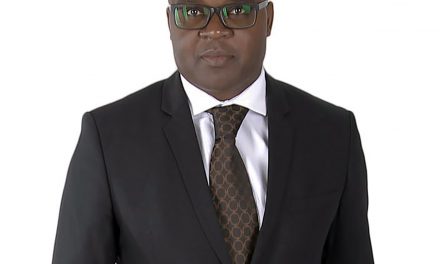
Microsoft white spaces demo goes live

The TV White Spaces trial run included high-resolution Skype video conferencing from three locations, each connected to the Internet with the help of Adaptrum’s TVWS technology with the the next steps are to enhance the network operational efficiency, and to trial video teaching, e-content distribution, and peering between the connected stations.
The project which had been announced last year, was later confirmed during the visit by Microsoft’s East and Southern Africa Country Manager, Eric Odopi earlier this year in March.
The intention of the project is to provide a blueprint of broadband internet connectivity countrywide. Called ‘Citizen Connect’, the pilot consists of a network deployed over a 9,424 km² area covering three regional councils, Oshana, Ohangwena and Omusati, and connecting 28 schools in northern Namibia. This makes it the biggest TVWS project of its kind in terms of area coverage.
The project connect three regional offices, 28 schools and seven education circuit offices, all with a link distance of 8km to 10km, with two links at 12km. Typical data speeds range from 5Mbps to 10Mbps with the help of the Adaptrum ARCS 2.0 TVWS radios and provided users access to a wide range of voice, video, and data applications.
Namibia, like most sub-Saharan African countries, is facing a digital divide. The International Telecommunications Union (ITU) country profile shows that only 13.9% of the population is using the internet.
Dr. Moses Amweelo, the Chairman of the Parliamentary Standing Committee on ICT said, “This pilot project came at the right time for us to answer to the challenges of internet access, or the lack thereof, to all our citizens.”
In 2012, the United Nations Human Rights Council passed a resolution recognising internet access a basic human right. In his final State of the Nation address in March 2014, HE, President Pohamba, specifically highlighted the importance internet will play in transforming and modernising the Namibian economy.
The deployment of TVWS technology in Africa falls under Microsoft’s 4Afrika Initiative, which was launched in February 2013 to enable rural economic development using relevant, affordable and accessible technology.
“Internet access is a fundamental pillar in Africa’s leap forward towards a sustainable knowledge economy. We are seeing first-hand the direct impact of TVWS delivering affordable access to communities and business,” said Fernando de Sousa, Microsoft’s General Manager for Africa Initiatives.
In collaboration with local public and private sector partners, Microsoft 4Afrika is currently piloting TVWS projects in Kenya, Tanzania, South Africa and Ghana. In addition to these on-the-ground deployments, Microsoft is advocating for laws and regulations that promote more efficient and effective spectrum utilisation as a member of the Dynamic Spectrum Alliance.












































